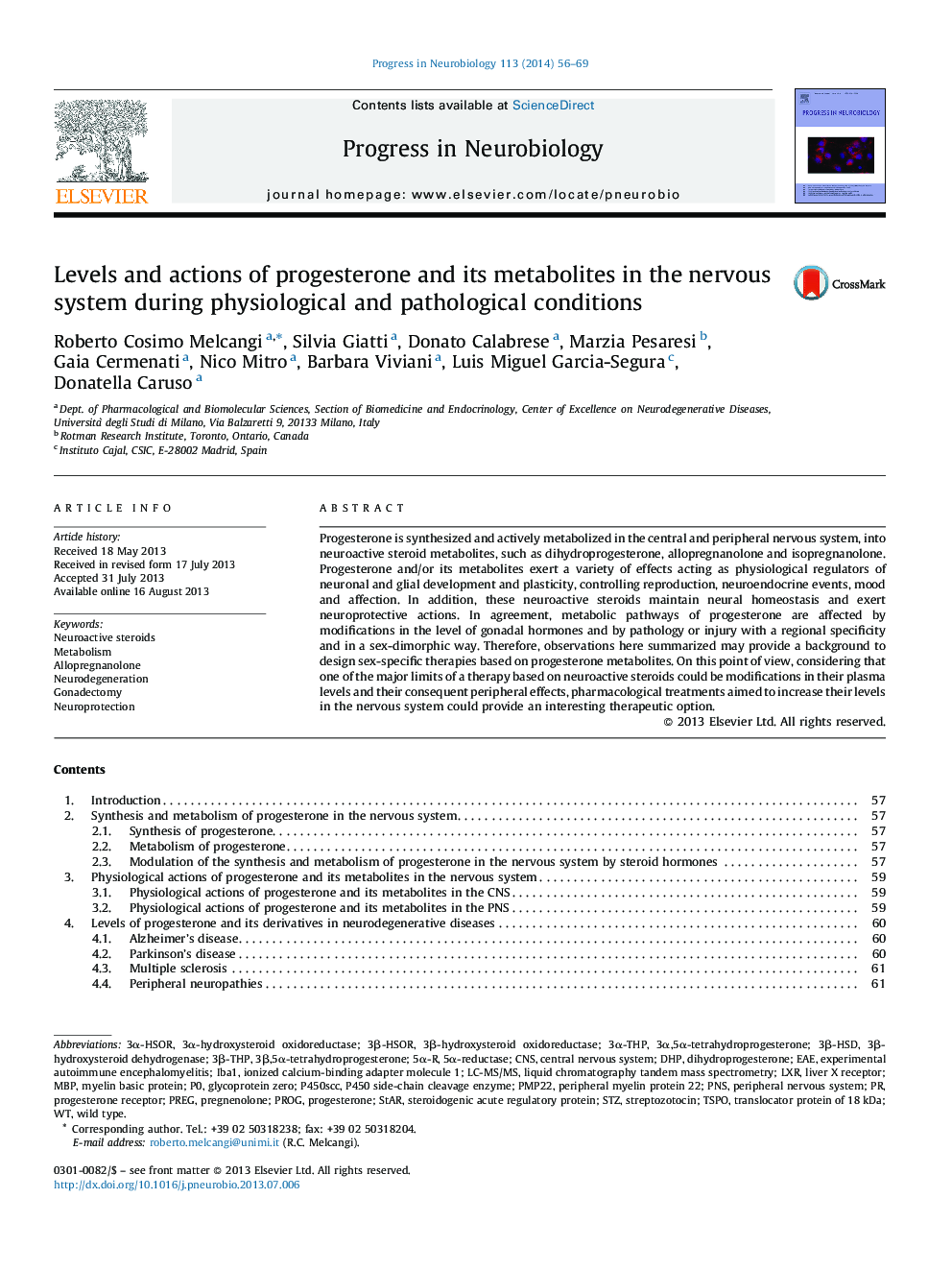| Article ID | Journal | Published Year | Pages | File Type |
|---|---|---|---|---|
| 4353355 | Progress in Neurobiology | 2014 | 14 Pages |
•Nervous system adapts its local levels of pregnenolone, progesterone and its metabolites in response to changes in gonadal hormones.•Progesterone and its metabolites act as physiological modulators and protective agents in the nervous system.•Levels of progesterone and its metabolites are affected in neurodegenerative diseases.•Levels of progesterone and its metabolites in the nervous system are sex-dimorphic.•It is possible to increase locally the levels of progesterone and its metabolites by pharmacological approaches.
Progesterone is synthesized and actively metabolized in the central and peripheral nervous system, into neuroactive steroid metabolites, such as dihydroprogesterone, allopregnanolone and isopregnanolone. Progesterone and/or its metabolites exert a variety of effects acting as physiological regulators of neuronal and glial development and plasticity, controlling reproduction, neuroendocrine events, mood and affection. In addition, these neuroactive steroids maintain neural homeostasis and exert neuroprotective actions. In agreement, metabolic pathways of progesterone are affected by modifications in the level of gonadal hormones and by pathology or injury with a regional specificity and in a sex-dimorphic way. Therefore, observations here summarized may provide a background to design sex-specific therapies based on progesterone metabolites. On this point of view, considering that one of the major limits of a therapy based on neuroactive steroids could be modifications in their plasma levels and their consequent peripheral effects, pharmacological treatments aimed to increase their levels in the nervous system could provide an interesting therapeutic option.
